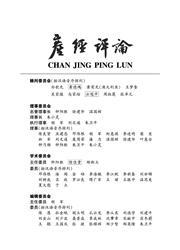

 中文摘要:
中文摘要:
本文围绕着土地流转行为,将农户的经济决策放置在农户、地方政府与中央政府的三重博弈框架中展开论述。我们构建一个包含农户、地方政府、中央政府三重博弈的农户经济决策一般模型;研究发现:在土地流转过程中,农户的决策行为趋于理性。现实中,农户的决策行为决定于其家庭自身的经济禀赋以及外部政策环境。在一定经济禀赋条件下,农户群体面对各种政策环境与条件的变化,认识到中央政府与地方政府的利益导向以及与自身利益的一致性。当地方政府的政策比中央政府的政策更有利于农户时,农户容易与地方政府达成默契,形成利益同盟,并努力促使中央政府修正政策。当中央政府与地方政府之间的利益相互配合,而中央政府的政策相对地方政府更有利于农户时,农户则可以利用中央政府政策对地方政府形成压力,迫使地方政府修正政策或者自己提前采取"行动",充分获取利益。
 英文摘要:
英文摘要:
The peasant household's decision-making is put within the framework of triple game from the lo- cal government and the central government in the research paper, and the topic is surrounded by land transfers. The authors build a triple-game general model of economic decision-making including farmers, local government, and the central government. The study finds that: In the land transfer process, the peasant household shows rational in decision-making behavior. In reality, the decision-making behaviors of farmers depend on their family's own economic endowments and the external policy environment. When the endowments is in certain economic conditions, farmers group could clearly recognize that the central government and local governments interest-oriented, as well as with its own interests in the face of the policy environment. For example: When the policies of local governments are more conductive to peasants rather than the central government's policies. At this point, farmers and local governments are easier to reach a tacit agreement to form alliance interests, and they effort to promote the central government to amend the policy. In addition, when the central government and local government coordinate between the interests of each other, while the central government's policies are more beneficial to farmers than the local one. Under such circumstances, farmers can take advantage of central government policy to put pressure on local governments, forcing local governments to amend their own policies, or ahead of schedule to take "action" to fully reap the benefits.
 同期刊论文项目
同期刊论文项目
 同项目期刊论文
同项目期刊论文
 期刊信息
期刊信息
